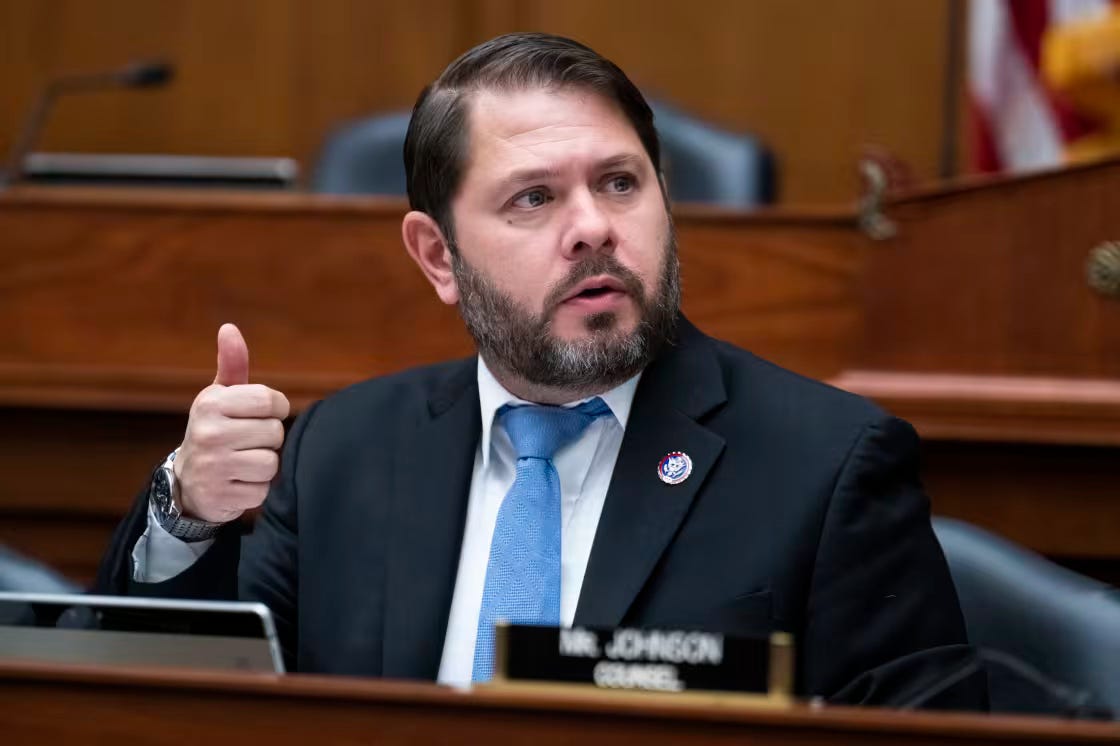Senate Dems Drop Seven-Pillar Market Structure Framework
Priorities include stronger regulation, tackling illicit finance, and preventing Trump crypto corruption
A group of twelve Senate Democrats released a detailed framework for market structure legislation Tuesday morning, a strong signal the minority party is ready to work across the aisle on comprehensive crypto market reform.
The group, made up of Senators Ruben Gallego (AZ), Mark Warner (VA), Kirsten Gillibrand (NY), Cory Booker (NJ), Catherine Cortez Masto (NV), Ben Ray Luján (NM), John Hickenlooper (CO), Raphael Warnock (GA), Adam Schiff (CA), Andy Kim (NJ), Lisa Blunt Rochester (DE), and Angela Alsobrooks (MD), said that crypto’s nearly $4 trillion global market, along with the millions of Americans who participate in it, is too large to remain in regulatory limbo.
Preventing President Trump from financially benefiting from his many crypto ventures remains very much top of mind, with an entire section of the seven-part framework dedicated to stopping elected officials and their families from profiting off digital assets while in office.
“Today, we’re releasing a framework for a market structure bill that would regulate digital asset markets in the U.S., ensure responsible innovation, and create a safe and level playing field for all market participants.”
The group describes the framework as a roadmap to guide what they hope will be ‘robust and fruitful bipartisan negotiations and, ultimately, a bipartisan product.’
Here’s a look at the Democrats’ seven main priorities:
Close the spot market gap by giving the CFTC clear authority over non-security tokens (digital commodities), with new disclosure and anti-manipulation rules for trading platforms.
Clarify jurisdiction with a formal process for determining whether a token is a security or a commodity, along with regulatory guidance and safe harbors to reduce litigation.
Bring issuers into compliance with plain-English disclosures on token governance, insider holdings, and use of proceeds.
Bring platforms into compliance by directing the SEC to write crypto-specific rules for exchanges, brokers, custody, pricing, conflicts of interest, even DeFi.
Prevent illicit finance by requiring platforms to register as banks with FinCEN and comply with BSA/AML and sanctions rules, including offshore and decentralized players serving U.S. users.
Prevent corruption and abuse by restricting elected officials and their families from issuing or profiting from crypto projects while in office and requiring disclosure of their holdings.
Ensure fair, effective regulation by boosting funding for the SEC, CFTC, and Treasury, adding streamlined hiring authority, and mandating bipartisan rulemakings.
The framework comes on the heels of Senate Banking Republicans releasing their latest market structure discussion draft on Friday, ahead of bipartisan negotiations to craft legislation that both sides can (hopefully) agree on.
While many of the end goals are the same, some of the more divisive provisions, such as the ethics clauses and the strict policing of DeFi, could make the legislation harder to pass as both parties work toward a markup in the Senate Banking Committee in the coming weeks.
Timing is also likely to be a point of contention.
Republicans have been pushing to move quickly on market structure legislation at the behest of President Trump. Democrats, meanwhile, are making it clear they are not in any hurry.
“Achieving a strong, bipartisan outcome will require time and cannot be rushed,” they said.
On the bright side: Despite historically being less enthusiastic about crypto than their Republican counterparts, Democrats aren’t saying no to market structure. They’re just saying ‘not so fast.’





Hmmm. What a treat. I wasn't expecting a post on a Tuesday.
I'll be including some of today's content when I write my non-republican) Senator Tammy Baldwin (Dem-WI).
Thanks.